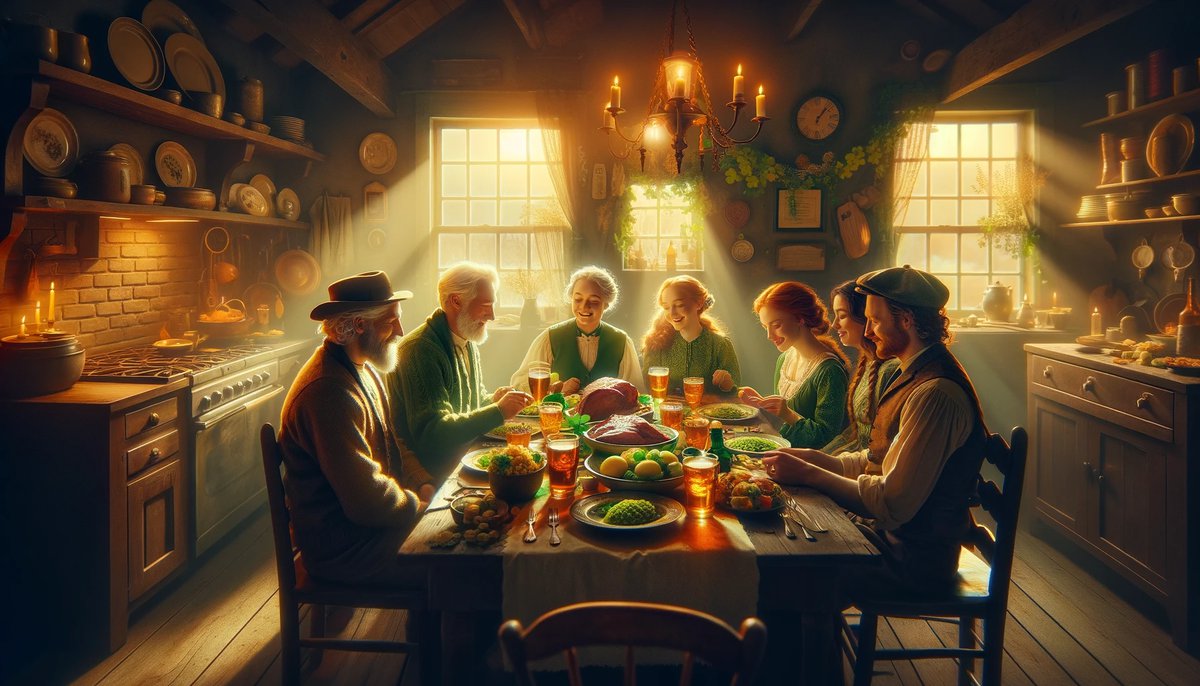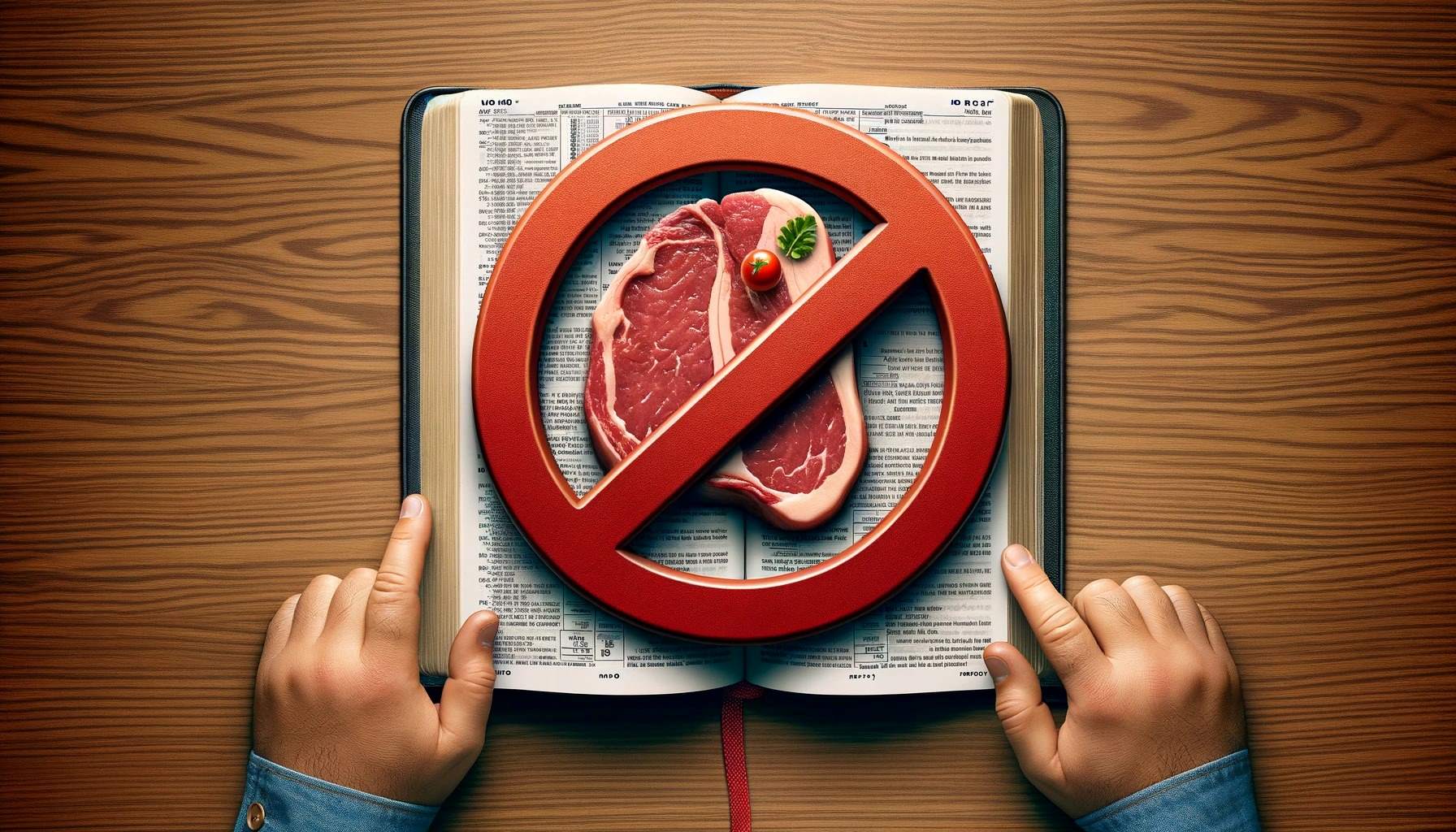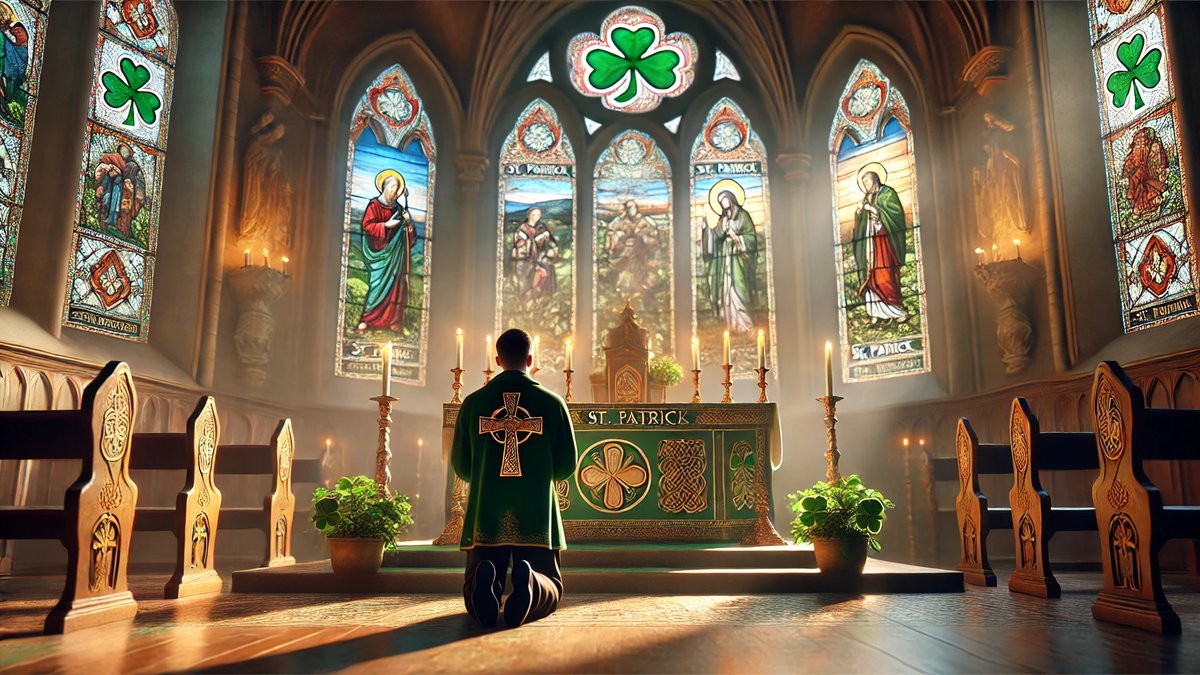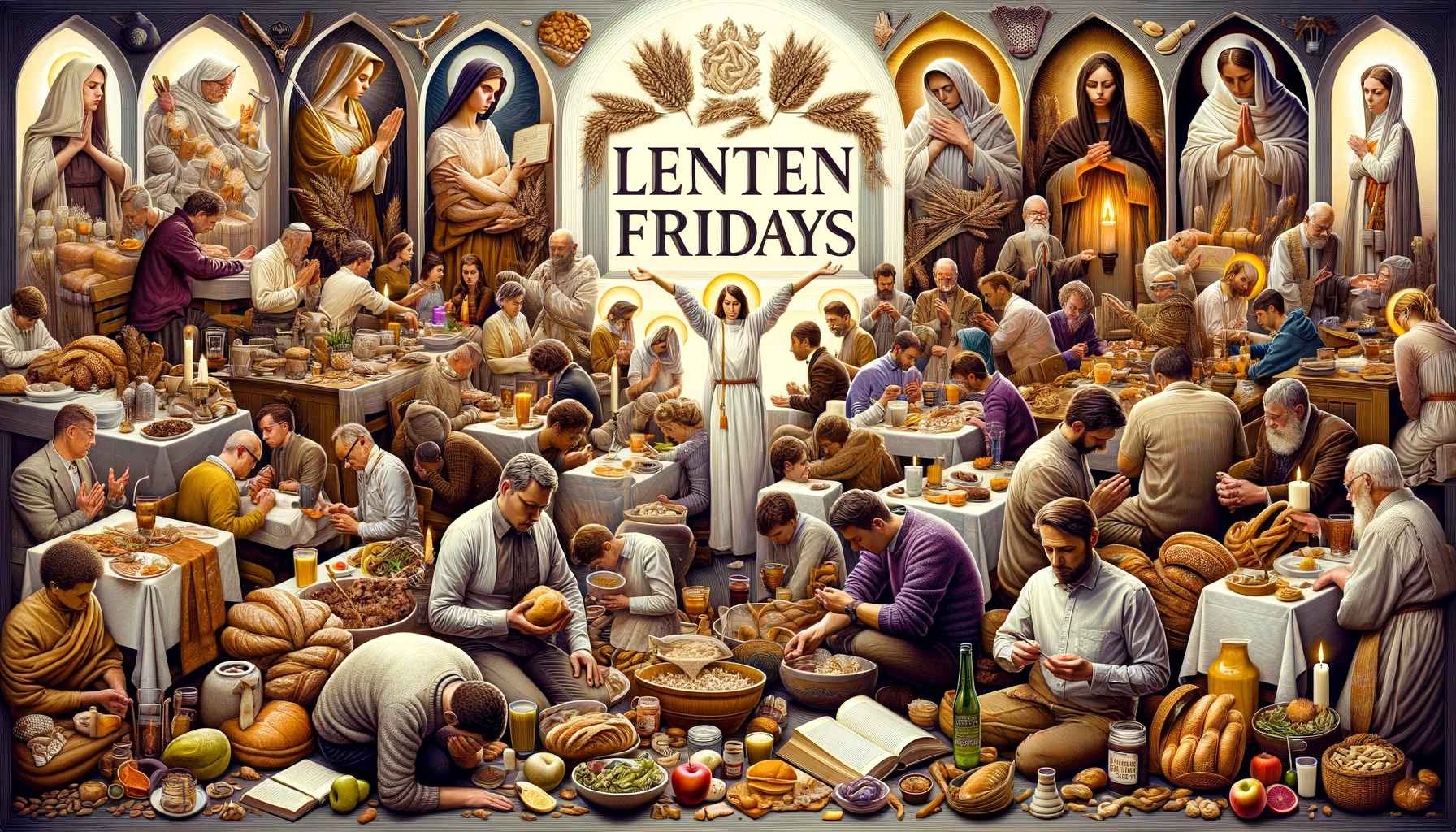Home>Special Themes>Is It Okay To Eat Meat On St. Patrick’s Day When It’s On A Friday In Lent?


Special Themes
Is It Okay To Eat Meat On St. Patrick’s Day When It’s On A Friday In Lent?
Published: February 29, 2024
Peter Smith, Editorial Director at Christian.net, combines deep insights into faith, politics, and culture to lead content creation that resonates widely. Awarded for his contributions to religious discourse, he previously headed a major organization for religious communicators, enhancing dialogue on faith's societal impacts.
Discover if it's acceptable to indulge in meat on St. Patrick's Day when it falls on a Friday during Lent. Explore special themes and traditions.
(Many of the links in this article redirect to a specific reviewed product. Your purchase of these products through affiliate links helps to generate commission for Christian.net, at no extra cost. Learn more)
Table of Contents
The Tradition of Eating Meat on St. Patrick's Day
St. Patrick's Day is a festive occasion celebrated by people of Irish descent and many others around the world. It is a day filled with parades, music, dancing, and of course, traditional Irish cuisine. One of the most well-known traditions associated with St. Patrick's Day is the consumption of meat. Corned beef and cabbage, a popular dish on this day, has become synonymous with the holiday. The tradition of eating meat on St. Patrick's Day has deep cultural roots and is a way for people to honor the patron saint of Ireland. It is a time for families and communities to come together and enjoy a hearty meal, often featuring delicious meat dishes.
Why Do People Eat Meat on St. Patrick's Day?
- Cultural Significance: For many Irish families, the tradition of eating meat on St. Patrick's Day is a way to connect with their heritage and celebrate their identity. The meal is a symbol of unity and pride in their Irish roots.
- Historical Context: The association of meat with St. Patrick's Day can be traced back to the early Irish immigrants in the United States. Due to its affordability, corned beef became a staple in their diet, especially on special occasions like St. Patrick's Day.
- Festive Atmosphere: St. Patrick's Day is a time of merriment and revelry. Enjoying a meal with friends and family, often centered around a hearty meat dish, adds to the festive spirit of the day.
The tradition of eating meat on St. Patrick's Day is deeply ingrained in the cultural fabric of the holiday, and for many, it is an essential part of the celebration.
The Significance of Lenten Friday Abstinence
-
Spiritual Discipline: Abstaining from meat on Fridays during Lent is a practice deeply rooted in the spiritual discipline of self-denial and penance. It serves as a reminder of the sacrifices made by Jesus Christ and encourages believers to reflect on their own spiritual journey.
-
Symbol of Sacrifice: By refraining from consuming meat, individuals symbolically participate in the sacrifice of Jesus on Good Friday. This act of abstinence is a way to honor and commemorate the ultimate sacrifice made for the redemption of humanity.
-
Community Solidarity: Lenten Friday abstinence fosters a sense of solidarity within the Christian community. By collectively observing this practice, believers demonstrate their unity in faith and their commitment to spiritual growth during the Lenten season.
-
Focus on Spiritual Renewal: The act of abstaining from meat on Fridays redirects the focus from worldly indulgence to spiritual renewal. It encourages believers to prioritize prayer, reflection, and acts of charity, fostering a deeper connection with their faith.
-
Preparation for Easter: Lenten Friday abstinence is a preparatory practice for the celebration of Easter. By embracing self-discipline and sacrifice during Lent, individuals prepare themselves to fully experience the joy and significance of the resurrection of Christ on Easter Sunday.
Lenten Friday abstinence holds profound significance in the Christian tradition, serving as a tangible expression of faith, self-discipline, and communal solidarity during the Lenten season.
Historical Exceptions to Lenten Abstinence
-
Feast Days: Throughout history, the Church has recognized certain feast days as exceptions to the Lenten abstinence from meat. These feast days, such as the Annunciation and the Solemnity of St. Joseph, provide a reprieve from the dietary restrictions of Lent, allowing believers to partake in celebratory meals that may include meat.
-
Dispensations by Church Authorities: In some historical instances, church authorities have granted dispensations from the obligation of Lenten abstinence, particularly in situations where the observance of abstinence would cause undue hardship or conflict with other solemnities. These dispensations acknowledge the practical realities faced by individuals and communities while upholding the spirit of Lenten discipline.
-
Regional Traditions: Different regions and cultures have developed their own traditions regarding Lenten abstinence. Historical records indicate that certain regions, especially those with strong culinary traditions, may have had variations in the strictness of Lenten dietary practices. These regional differences reflect the diverse ways in which the Lenten season has been observed throughout history.
-
Economic Considerations: In times of economic hardship or scarcity, historical exceptions to Lenten abstinence from meat have been observed. The Church has recognized the importance of nourishment and sustenance, especially during challenging periods, and has allowed for flexibility in the observance of dietary restrictions to accommodate the needs of the faithful.
-
Pastoral Discretion: Throughout history, pastoral discretion has played a role in determining exceptions to Lenten abstinence. Pastors and spiritual leaders have been entrusted with the pastoral care of their flocks, and they have the authority to make pastoral decisions that take into account the unique circumstances and needs of their congregations, including the observance of Lenten abstinence.
Historical exceptions to Lenten abstinence reveal the dynamic and adaptive nature of religious practices over time. These exceptions demonstrate the intersection of faith, culture, and practical considerations in shaping the observance of Lenten dietary restrictions throughout history.
Modern Church Guidelines on Eating Meat on St. Patrick's Day
In modern times, the Church has provided specific guidelines regarding the consumption of meat on St. Patrick's Day when it coincides with a Friday during Lent. These guidelines aim to address the intersection of cultural traditions, religious observance, and the significance of Lenten abstinence. The approach to this issue reflects a balance between honoring cultural practices and upholding the spiritual disciplines of the Lenten season.
-
Pastoral Guidance: Church leaders and pastors often provide pastoral guidance to their congregations regarding the observance of Lenten abstinence on St. Patrick's Day. This guidance may include considerations for the cultural significance of the holiday and the importance of maintaining the spirit of penance and self-discipline during Lent.
-
Encouragement of Alternative Practices: In some cases, the Church encourages individuals to engage in alternative acts of penance and self-denial if they choose to consume meat on St. Patrick's Day. This may involve additional prayers, acts of charity, or other forms of spiritual devotion to complement the celebration of the holiday.
-
Emphasis on Spiritual Reflection: Modern Church guidelines underscore the importance of spiritual reflection and intentionality in decision-making regarding the consumption of meat on St. Patrick's Day. Individuals are encouraged to prayerfully consider their choices and to approach the decision with a spirit of reverence and mindfulness.
-
Respect for Cultural Traditions: The Church acknowledges the deep-rooted cultural traditions associated with St. Patrick's Day, particularly within Irish communities. While upholding the significance of Lenten abstinence, the Church respects the cultural expressions of faith and encourages a balanced approach that honors both religious observance and cultural heritage.
-
Educational Outreach: Church communities may engage in educational outreach to provide clarity on the intersection of St. Patrick's Day, Lenten abstinence, and the principles of Catholic teaching. This outreach aims to foster understanding and informed decision-making among the faithful regarding the consumption of meat on this particular day.
-
Flexibility in Individual Choice: Ultimately, modern Church guidelines recognize the autonomy of individuals in making conscientious decisions regarding the consumption of meat on St. Patrick's Day. While upholding the principles of Lenten abstinence, the Church allows for personal discernment and encourages individuals to approach the matter with a spirit of faith and discernment.
The modern Church's approach to the consumption of meat on St. Patrick's Day during Lent reflects a nuanced understanding of the intersection of cultural traditions and religious observance. By providing pastoral guidance, emphasizing spiritual reflection, and respecting cultural traditions, the Church seeks to navigate this issue with sensitivity and reverence for both faith and heritage.
Read more: When Can You Not Eat Meat During Lent
Personal and Cultural Considerations for Eating Meat on St. Patrick's Day
-
Family Traditions: For many individuals, St. Patrick's Day is a time to honor family traditions and cultural heritage. The consumption of meat on this day may be deeply intertwined with familial customs passed down through generations. It serves as a way to connect with one's roots and celebrate the rich tapestry of Irish culture. The decision to eat meat on St. Patrick's Day can be a reflection of familial bonds and the preservation of cherished traditions.
-
Community Celebrations: St. Patrick's Day is often marked by vibrant community celebrations, where the sharing of meals and festivities plays a central role. In many Irish communities, the communal enjoyment of meat-based dishes on this day fosters a sense of unity and camaraderie. The cultural significance of these communal gatherings and the associated culinary traditions can influence individuals' choices regarding the consumption of meat, as it is intricately linked to the communal spirit of the holiday.
-
Cultural Identity: For individuals of Irish descent, St. Patrick's Day holds profound significance as a celebration of their cultural identity. The consumption of meat on this day may symbolize a connection to Irish heritage and a way to express pride in one's cultural roots. The decision to partake in meat-based meals on St. Patrick's Day can be a manifestation of cultural identity and a means of affirming one's Irish heritage within the context of the holiday.
-
Personal Reflection and Devotion: Some individuals approach the question of eating meat on St. Patrick's Day with a deep sense of personal reflection and devotion. The decision may involve prayerful consideration and a desire to honor both the cultural traditions of the holiday and the spiritual disciplines of Lent. It becomes a personal expression of faith and a deliberate choice made in the context of one's spiritual journey.
-
Culinary Heritage: The culinary heritage associated with St. Patrick's Day, including the preparation of traditional meat-based dishes, holds a special place in the hearts of many individuals. The enjoyment of these culinary delights on the holiday represents a celebration of Irish cuisine and culinary artistry. The cultural significance of these dishes can influence individuals' decisions regarding the consumption of meat, as it is intricately tied to the culinary legacy of the holiday.
-
Balancing Tradition and Faith: The question of eating meat on St. Patrick's Day during Lent often presents individuals with the challenge of balancing cultural traditions with religious observance. This delicate balance requires thoughtful consideration of both personal and cultural significance, as well as the spiritual implications of dietary choices during the Lenten season. The decision-making process involves navigating the intersection of tradition, faith, and cultural heritage in a manner that is respectful and mindful.
The personal and cultural considerations surrounding the consumption of meat on St. Patrick's Day reflect the intricate interplay of familial, communal, and spiritual dimensions. The decision-making process is deeply influenced by the desire to honor cultural traditions, express cultural identity, and navigate the complexities of personal and communal celebrations within the context of the Lenten season.














